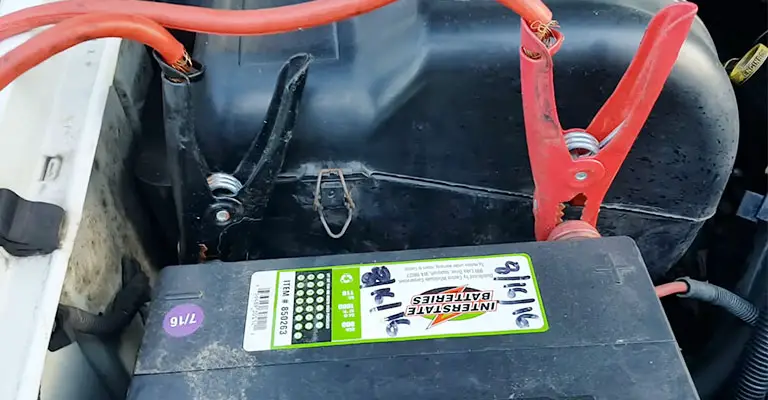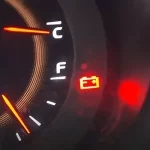It’s probably the alternator causing the engine to start but then die immediately after it starts. A dead battery probably causes your car not to start again after it is jumpstarted, but it will keep running if you jumpstart it.
In more precise terms, it sounds like the alternator has failed, and the battery is not being charged. The alternator is responsible for taking over the battery once the car has started.
Several problems can result from a malfunctioning alternator, including the vehicle shutting down or dying. Have a certified technician look at the charging system if your alternator needs to be replaced.
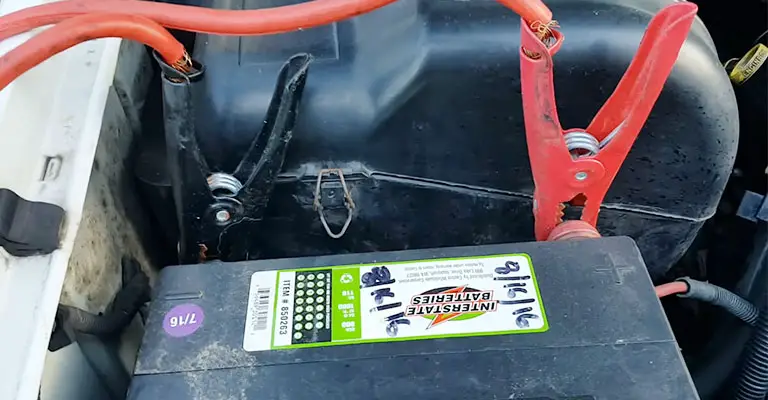
Why Does My Car Keep Dying Even After Jump Start?
The battery might seem to be the problem, but it is most likely not. Most likely, it’s not a battery issue. However, you may find that the alternator is not charging the battery after the battery is jumpstarted.
A battery that does not receive enough charge from the alternator may only last a few minutes before it runs out of power.
So even though the battery is only a year old, you’ll need to recharge it completely and load-test it to ensure it works properly.
It is important to check the alternator to see if it is charging normally once the battery has been recharged. Testing a battery or charging system with a voltmeter or amp probe is the most accurate way to do this.
In the case of an engine that runs at 1500 RPMs, the alternator should put out 13.5 volts and 80% of its rated amp output.
You should use an alternator with a rating of 75 to 100 amps. The alternator needs to be replaced if it does not produce over 60 amps.
1. Voltage Regulator Or Alternator Failure
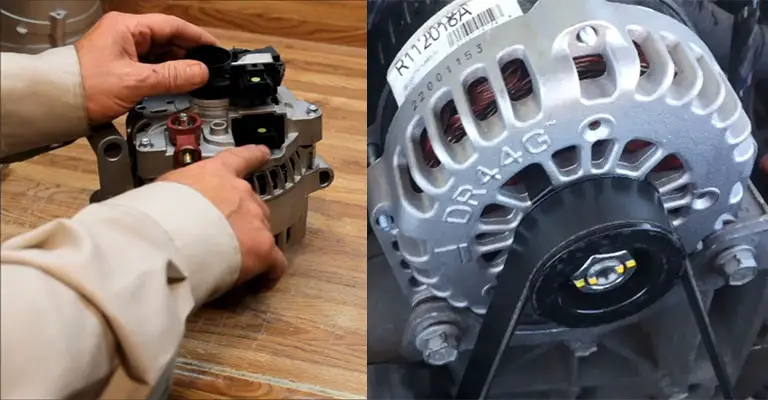
You may have a problem with your alternator or voltage regulator if your car dies after being jumpstarted.
A battery will be charged, and the electrical system powered by the alternator, while a voltage regulator will maintain a constant voltage level.
This can lead to the battery losing power and, eventually, your car dying if either of these components fails.
Other electrical components, such as the lights, can also be damaged by a failing alternator or voltage regulator.
Get your alternator and voltage regulator checked as soon as possible if you suspect they are causing your car’s problems.
2. How To Tell If Your Alternator Is Malfunctioning?
Once you’ve tested the battery and found it to be working, you need to check the alternator closely.
Bad alternator symptoms can be identified by looking for certain symptoms. Learn how to tell if your alternator needs to be replaced:
Burning Rubber Or Hot Wire Smell
Can you smell burnt rubber or hot wires coming from your alternator, which could be a sign that your alternator is overheating? It may be time for you to replace it if that is the case.
There Is A Growling Noise
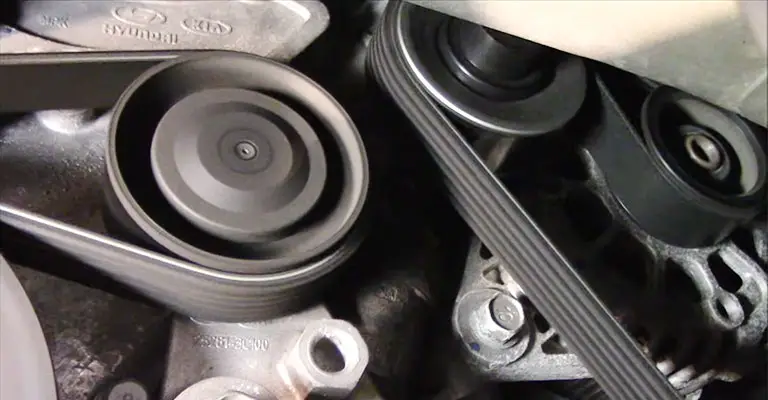
Was there a growling sound that you heard before the trouble started? Occasionally, this happens before an alternator gives out.
Headlights That Are Too Bright Or Dim
Have you ever noticed your headlights dimming when you stop and becoming brighter when you accelerate? Alternators often fail to charge batteries adequately, resulting in this problem.
Interior Lights Are Dim
Observe the brightness of the car’s interior lights while it is running. A problem with the alternator is likely to cause a gradual dimming of the dashboard.
Alternator Test
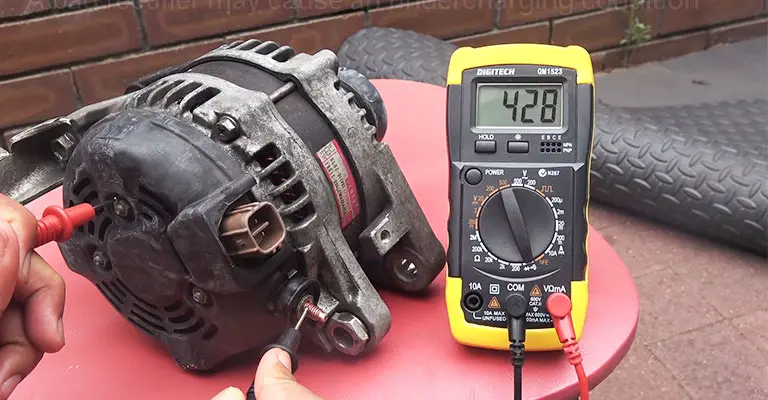
To test the alternator, some may recommend running the engine with the negative cable connected to the battery disconnected.
However, your vehicle’s electrical system could be damaged if you do this, causing further problems.
3. Battery That Is Old Or Dead
Are you having trouble starting your old car every time you turn the key? If you had a car breakdown while driving, you might have needed a tow truck to jumpstart it.
It is likely that your car has a dead or old battery if either of these scenarios sounds familiar. Battery capacity decreases as they age.
The result is that, especially in cold weather, they are unable to provide sufficient power to start the car. A dead battery can also cause a car to stall.
To determine whether you need to replace the battery in your car if it stalls frequently have it tested. Basically, a dead or old battery may be to blame if your car cannot start or stays on.
4. There’s Something Else Consuming Your Battery
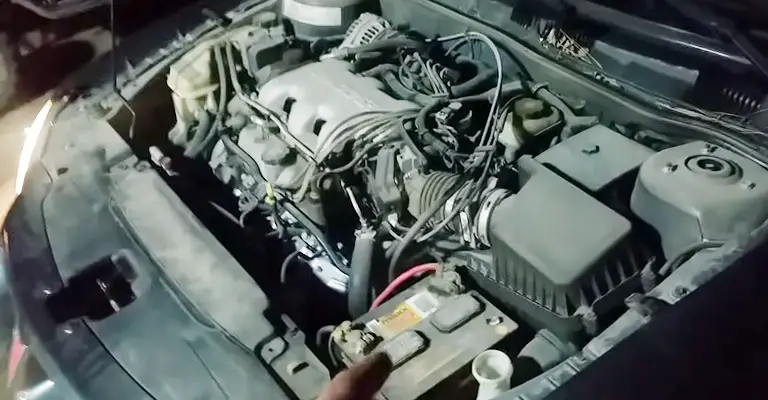
The underlying cause of your car’s battery drain must be identified and fixed after you jumpstart your car. If you don’t do anything, your car will have to be jumpstarted repeatedly.
One of the most common causes of battery death is another electrical component draining its power. Whether it’s a loose wire or a stuck light, it can be as simple as this.
Make sure all lights in the car are turned off first before attempting to locate the issue. After that, test the battery voltage with a voltmeter while the car is off. An electrical draw somewhere in the car is evident if the voltage is below 12 volts.
Use a process of elimination to isolate the source of the draw by disconnecting each electrical component one at a time until the voltage returns to 12 volts.
You can repair or replace the component that’s causing the problem and hopefully eliminate the need to jumpstart your vehicle.
Is It Possible To Drive With A Bad Alternator Or Battery?
The alternator in your car can run for a short period of time with a faulty one. However, doing so is risky and can be dangerous for you and other motorists.
In addition to the engine and electrical problems, driving on a bad alternator can lead to a variety of other problems.
In addition, your car’s battery will eventually deplete, resulting in a dead battery. Finally, in a remote area without access to jumper cables, you may end up stranded without a way to jump your car.
Is My Car Going To Die Again If I Jumpstart It?
Your car may die again when you jump it if your battery is not working properly. If the alternator fails, the car will eventually die if it does not power the battery and keep it charged.
In addition, the engine may shut off more frequently if the battery is dying or the headlights may dim.
If the alternator is not functioning properly, you may notice the engine running rough or flickering lights. If either the battery or alternator needs to be replaced, your car will likely die again unless you have them replaced.
Is It Possible To Jump Start A Car With A Dead Battery?
A car battery can be totally drained of power before it is able to be jump-started. Therefore, battery replacement is necessary when a battery is completely dead and can no longer hold a charge.
Usually, batteries that go unused for extended periods are too dead to start after they sit for a period of time. Your car’s electrical system may be damaged if you jumpstart it with a dead battery.
If I Jumpstart My Car Battery, How Long Will It Last?
There should be no problem with a good battery lasting several years. Obviously, this depends on how old the battery is and it’s quality.
Batteries that are brand new will obviously last longer than old batteries. If your battery is on its last legs, a jump start will give it a temporary boost, but it won’t last long. The battery is probably due for replacement soon.
The battery can, however, be given new life via a jump start if it’s not too old and of good quality. The battery itself determines how long it will last.
How Long Does It Take To Charge A Car Battery After Jumping?
The engine should be kept running for at least 30 minutes after starting the vehicle with jumper cables. It is better to drive the vehicle than to leave it idle in order to get better results.
The battery will be recharged faster this way. However, it may take longer to charge a battery that is completely dead.
To prevent this, you should drive the car for at least an hour before turning it off. By doing this, it will have a chance to recharge completely and extend its lifespan.
The Bottom Line
You may have encountered some issues when jumpstarting your car after reading this article. I hope it has helped you troubleshoot them.
Also, be aware of other things that can drain your battery after a jump start, and check your battery health afterward.
This simple guide will help you reduce the chances of your car dying again after a jump start.
What is your experience with jump starters? How did your experience go? We’d love to hear what you think in the comments.

